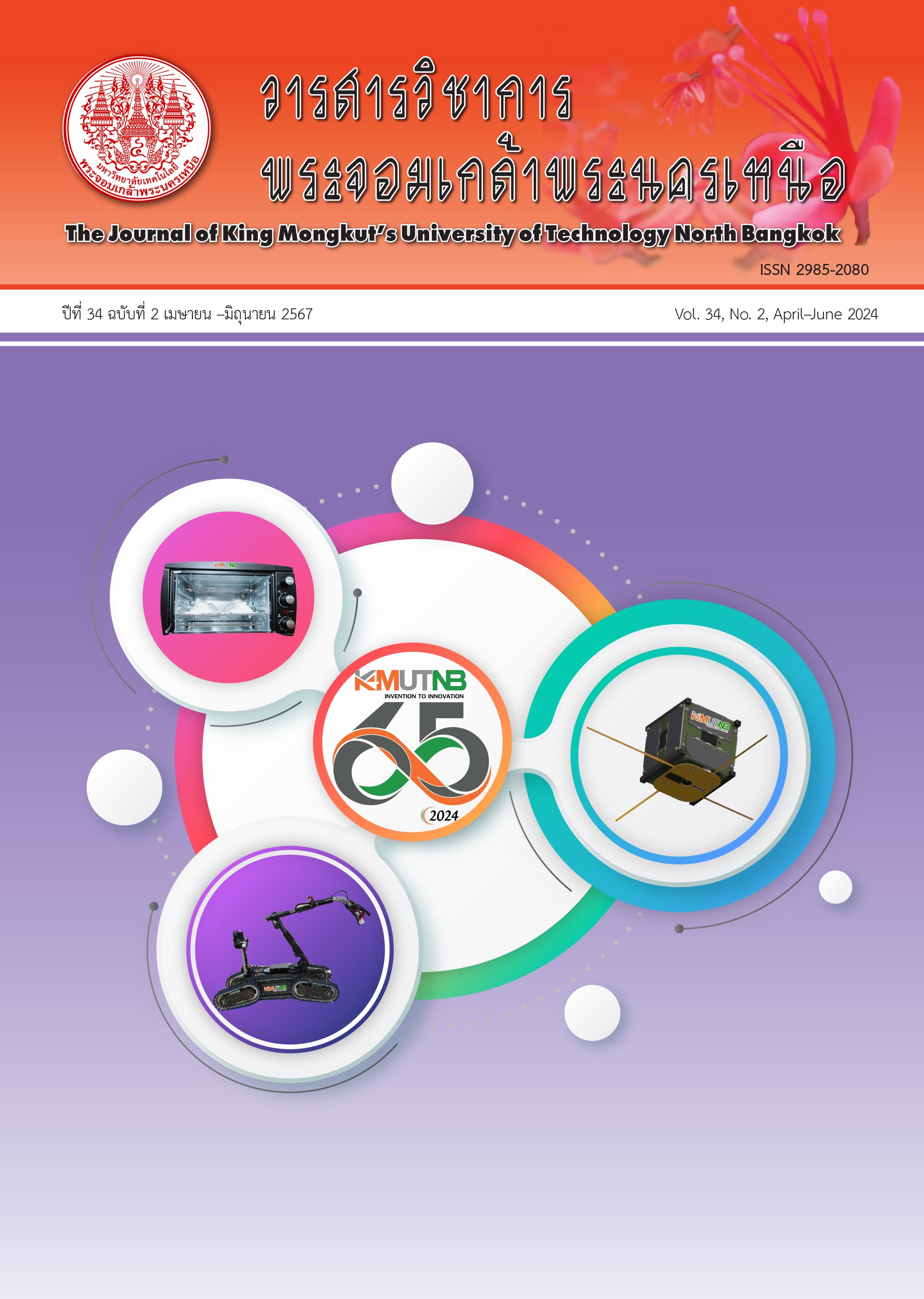รูปแบบการพัฒนาสมรรถนะของวิศวกรต้นทุนในอุตสาหกรรมก่อสร้าง
Main Article Content
บทคัดย่อ
การวิจัยครั้งนี้มีวัตถุประสงค์เพื่อ 1) ศึกษาองค์ประกอบสมรรถนะของวิศวกรต้นทุนในอุตสาหกรรมก่อสร้าง 2) สร้างรูปแบบการพัฒนาสมรรถนะของวิศวกรต้นทุนในอุตสาหกรรมก่อสร้าง และ 3) จัดทำคู่มือแนวทางการพัฒนาสมรรถนะของวิศวกรต้นทุนในอุตสาหกรรมก่อสร้าง เป็นการวิจัยแบบผสมผสานเชิงปริมาณและเชิงคุณภาพ โดยใช้เทคนิคเดลฟาย การวิจัยนี้มีกลุ่มผู้ให้ข้อมูล 2 กลุ่ม 1) กลุ่มผู้เชี่ยวชาญในการสัมภาษณ์เชิงลึก และตอบแบบสอบถามเพื่อการวิจัยด้วยเทคนิคเดลฟาย เป็นนักวิชาการ ผู้บริหารโครงการก่อสร้าง ผู้บริหารงานวิศวกรรมต้นทุน และผู้บริหารฝ่ายทรัพยากรมนุษย์ จากธุรกิจรับเหมาก่อสร้าง ธุรกิจพัฒนาอสังหาริมทรัพย์ ธุรกิจที่ปรึกษาด้านก่อสร้าง ผลิตภัณฑ์ก่อสร้างและพัฒนาองค์กร ด้วยวิธีการคัดเลือกแบบเจาะจง จำนวน 21 คน และ 2) กลุ่มผู้ทรงคุณวุฒิในการสนทนากลุ่มประชาพิเคราะห์ ประกอบด้วย นักวิชาการ ผู้บริหารโครงการก่อสร้าง ผู้บริหารงานวิศวกรรมต้นทุน ผู้บริหารด้านพัฒนาองค์กรและทรัพยากรมนุษย์ โดยใช้วิธีการคัดเลือกแบบเจาะจง จำนวน 13 คน เครื่องมือที่ใช้ในการวิจัย ประกอบด้วย แบบสัมภาษณ์กึ่งโครงสร้าง และแบบสอบถาม สถิติที่ใช้วิเคราะห์ข้อมูลเชิงปริมาณใช้ค่ามัธยฐาน และค่าพิสัยระหว่างควอไทล์ และวิเคราะห์ข้อมูลเชิงคุณภาพโดยใช้การวิเคราะห์เชิงเนื้อหา ผลการวิจัยพบว่า 1) รูปแบบการพัฒนาสมรรถนะของวิศวกรต้นทุนในอุตสาหกรรมก่อสร้าง ประกอบด้วย 3 องค์ประกอบสมรรถนะหลัก 12 สมรรถนะย่อย ดังนี้ 1) องค์ประกอบสมรรถนะหลักด้านความรู้ ได้แก่ ความรู้เกี่ยวกับธุรกิจ ความรู้เกี่ยวกับธุรกิจก่อสร้าง ความรู้เกี่ยวกับกฎหมายธุรกิจก่อสร้างและพระราชบัญญัติที่เกี่ยวข้อง 2) องค์ประกอบสมรรถนะหลักด้านทักษะ ได้แก่ ความเชี่ยวชาญการประมาณราคา การบริหารต้นทุนโครงการก่อสร้างและผลกำไรความสามารถการใช้เทคโนโลยีสารสนเทศสมัยใหม่ การสื่อสารเชิงสร้างสรรค์ ความเป็นผู้นำทีมงาน การบริหารโครงการก่อสร้าง และ 3) องค์ประกอบสมรรถนะหลักด้านคุณลักษณะที่พึงประสงค์ ได้แก่ จริยธรรมการดำเนินธุรกิจ ความใฝ่รู้และแบ่งปัน ความมุ่งมั่นทำงานให้สำเร็จ 2) คู่มือแนวทางการพัฒนาสมรรถนะของวิศวกรต้นทุนในอุตสาหกรรมก่อสร้าง มีความเหมาะสม สอดคล้องกับเนื้อหาและสามารถนำไปใช้ประโยชน์ได้จริง โดยได้รับความเห็นชอบจากผู้ทรงคุณวุฒิด้วยมติเอกฉันท์คิดเป็นร้อยละ 100
Article Details

อนุญาตภายใต้เงื่อนไข Creative Commons Attribution-NonCommercial-NoDerivatives 4.0 International License.
บทความที่ลงตีพิมพ์เป็นข้อคิดเห็นของผู้เขียนเท่านั้น
ผู้เขียนจะต้องเป็นผู้รับผิดชอบต่อผลทางกฎหมายใดๆ ที่อาจเกิดขึ้นจากบทความนั้น
เอกสารอ้างอิง
T. Sridaranont, “A study of the situation and impact of construction technology in the Thai construction industry,” M.S. Thesis, Department of Industrial Engineering and Management, Faculty of Engineering and Industrial Technology, Silpakorn University, 2019 (in Thai).
K. Techakanont, “Thai construction industry to international..big and small must go together,” Prachachat Business newspaper, Bangkok, Thailand, 2009 (in Thai)
Kasikorn Research Center. (2021). Drilling the direction of Thai construction 64. Kasikorn Bank. Bangkok, Thailand. [Online] (in Thai). Available: https://www.kasikornbank.com/th/business/ sme/KSMEKnowledge/article/KSMEAnalysis/ Pages/krconstrution.aspx
Krungsri Research Center. (2021). Business/ Industry Outlook 2019–2021: Construction business / industry trends in 2019-21. Krungsri Bank. Bangkok, Thailand. [Online] (in Thai). Available: https://www.krungsri.com/th/ research/industry/industry-outlook/Construction- Construction-Materials/ Construction-Contractors/ IO/io-Construction -Contractors-21
Australian Institute of Quantity Surveyors. Competency Standards for Quantity Surveyors Construction Economist and Cost Engineers, The Australian Institute of Quantity Surveyors. ABN 97 008 485 809, 2012.
Standard of Elemental Construction Cost Code for Building, Engineering Institute of Thailand, 2012 (in Thai).
T. Pichayathdapong, “Strategies for using the competency system in human resource management to drive the organization towards excellence over competitors,” Damrong Rajanuphap Journal, vol. 6, no. 20, pp. 16–63, 2006 (in Thai).
D. C. McClelland, “Testing for competence rather than for intelligence,” American Psychologist, vol. 28, pp. 1–14, 1973.
Royal Institution of Chartered Surveyors, “The APC requirements and competencies,” Royal Institution of Chartered Surveyors, London, 1998.
S. N. A. M. Noor, S. U. M. Tobi, and K. R. Salim, “Competencies of quantity surveyors in construction industry: Document reviews from different quantity surveyor professional bodies,” presented at the IOP Conference Series Materials Science and Engineering, 2020.
Y. Panitanwong, T. Boonyasopon, S. Wisuttipaet, and T. Roopsing, “The development model of the management’s potential in construction service industry for Thailand 4.0,” The Journal of KMUTNB, vol. 30, no. 2, pp. 351–360, 2020 (in Thai).

